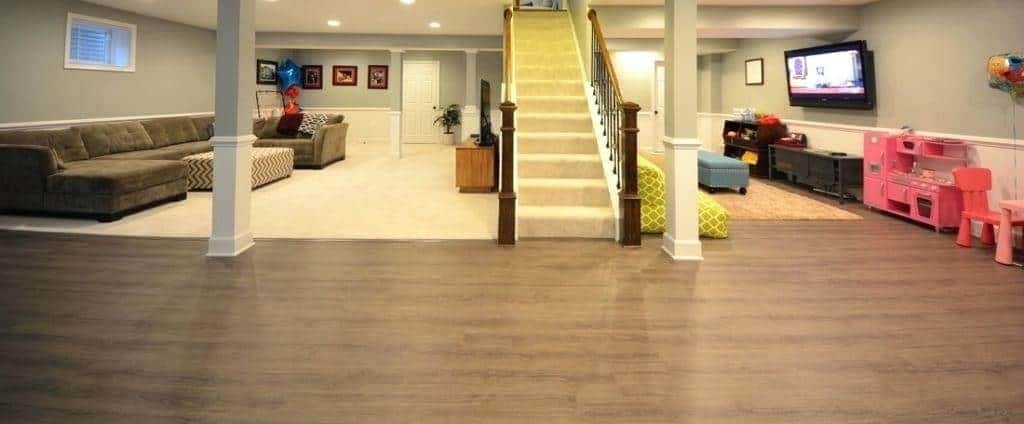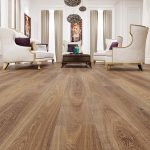The basement floor is below grade and it is the lowest surface in the house. Therefore, the installation of basement flooring requires additional precautions to be taken.
Moisture and humidity influence all regions of your home, sadly, the basement floor a lot more than others. In the summer season; warm, heavy and humid air tends to sink into the lower regions of your home. Here it comes in contact with the cooler surfaces such as flooring and walls. This is when condensation occurs and causes a moisture build up. Using a dehumidifier in your basement can help you maintain adequate concentrations of humidity.
Prior to installation of your basement floors it is essential to check for any open water sources that may harm your floor in the future. If an open water source is discovered it is essential to block and seal these sources before laying your basement floors.
Along with the precautions listed above, Hardwood Design Centre recommends these flooring options for your next basement-flooring project:

[Note: Every project is different. The needs, requirements and purpose of every basement-flooring project are unique. The recommendations below are general. Please, contact a Hardwood Design Centre Sales Representative to discuss your project and receive advice for your next flooring project.]
- Vinyl Flooring
Vinyl is a kind of plastic that is made from ethylene and chlorine combined together mechanically. Vinyl flooring is waterproof flooring. Therefore, it works extremely well for moisture prone areas such as the basement.
- Engineered Wood Flooring
Engineered hardwood is composed of multiple layers of plywood along with a layer of hardwood on top. In the past, builders, contractors and home-modellers prevented the use of hardwood in the basement. This has changed since the engineered hardwood was invented. The composition of layers provides a more stable and durable structure for the engineered hardwood when compared to solid hardwood. Plywood is considered dimensionally stable as it holds shape better than solid hardwood in the presence of moisture.
- Laminate Flooring
Laminate flooring planks have a composition similar to engineered hardwood. Laminate planks are multi-layer. The first layer is the photographic sheet underneath which are layers of HDF (High-Density Fiber). Laminate flooring is water resistant. It does not let water permeate easily and this makes Laminate flooring appropriate for basement use.
As explained above, the basement flooring installation process requires additional precautions to be taken prior to installation. Proper knowledge of the flooring product you chose for your basement flooring is essential for pre and post installation care. Vinyl, Engineered and Laminate flooring are some good options for your basement flooring. For more information about basement floors, vinyls, laminate, engineered hardwood, etc. contact a Hardwood Design Centre Sales Representative NOW!


